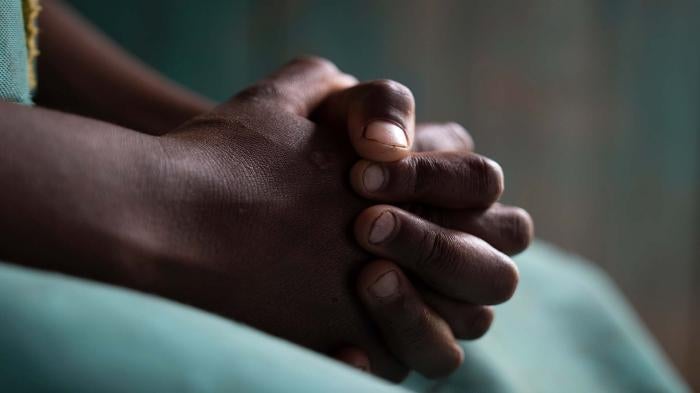Gender-Based Violence Survivors in Kenya Need More Government Support
Read a text description of this video
“Grace”, Survivor:
He (my husband) used to take advantage during the lockdown, because he knew I couldn’t go anywhere.
He beat me up so badly, something he was used to doing. That day I thought he was going to severely hurt me, because he kept saying he’ll kill me one day.
Nereah Akoth, Counselor, Center for Rights Education and Awareness (CREAW):
Gender-based violence has become a national disaster in this nation and therefore, it needs to be dealt with as a national disaster.
Nairobi, Kenya
Nereah Akoth, Counselor, Center for Rights Education and Awareness (CREAW):
When COVID came, it came with that component of social distance.
If you are in a situation where the husband is the one who is working, now, he uses the power
which is having the money to now manipulate or abuse this other person.
So home became a danger in the sense that you are forced in one way or the other to be with the perpetrator, with limited options.
The Kenyan government should ensure women and girls at risk of gender-based violence have access to adequate medical and mental health services, safe spaces, financial support and justice.
This is particularly critical during pandemic-related lockdowns.
Nereah Akoth, Counselor, Center for Rights Education and Awareness (CREAW):
We were supporting so many clients who were going through GBV [gender-based violence].
We are now having around 1,500 cases. That's already triple the number compared to 2019.
Shelters were overwhelmed because of lack of resources. They are understaffed.
Trans Mara East, Kenya
In 2020, Gladys Koskey received a call from the police about a child who had been abused.
Gladys Koskey, Community Activist:
The child is small, the mother is sick in the hospital and they are poor. The police asked Gladys to care for the child.
Nereah Akoth, Counselor, Center for Rights Education and Awareness (CREAW):
The community activists, they become the first responder. And then now that also raises issues of child protection, how safe is this child with this, with this activist? Because probably they are not trained in issues of protection.
But even if they are trained, they need extra support because you find out that they rescue using their own finances.
Gladys Koskey, Community Activist:
When she was brought to me, her condition was not good, she could not walk. She was afraid to go out and play because she did not have the strength to walk. What really helped the girl was talking to her and counseling. It took her about two months to recover. She then started going out to play with the neighbors.
The government has never given me anything. They just ask me to live with the child as my own, as they sort out the case. I volunteer to take care of these children because if I don’t, they will be oppressed.
Nereah Akoth, Counselor, Center for Rights Education and Awareness (CREAW):
It's the government's responsibility to take care of its people.
Violence has a way of affecting somebody's mental well-being to a point of sometimes even making smaller decisions becomes very difficult.
So, by the time a woman is deciding to come out of an abusive relationship, there needs to be a lot of support.
“Grace”, Survivor:
I made a decision to leave. I went to the hospital and then went directly to the police station. I used to live a life of fear. At least here, I’m able to relax. The counselor comes to talk with me.
Trans Mara East, Kenya
Gladys Koskey, Community Activist:
We went to the Chief, because we refused to see our fellow women being battered. We said we want to go around teaching and sensitizing our women (to the problem).
Those in government, all they do is talk. We want the government to intervene because personally, it’s overwhelming.
The Department of Children Services should set up a child protection referral system, with adequate monitoring and support for community organizations, extended family or foster families when children are placed in their care.
Community activists like Gladys who foster survivors, should be equipped with the skills and tools, including financial support, to provide these services.
(Nairobi, September 21, 2021) – The Kenyan government’s response to gender-based violence during the Covid-19 pandemic has been too little, too late, Human Rights Watch said in a report released today.
The 61-page report, “‘I Had Nowhere to Go’: Violence against Women and Girls during the Covid-19 Pandemic in Kenya,” documents how the Kenyan government’s failure to ensure services to prevent gender-based violence and provide assistance to survivors under its Covid-19 response measures facilitated an increase in sexual and other violence against women and girls. Survivors faced increased harm due to Kenyan authorities’ failure to ensure that they have access to comprehensive, quality, and timely medical treatment; mental health care and protection services; financial assistance; and to properly investigate and prosecute cases

